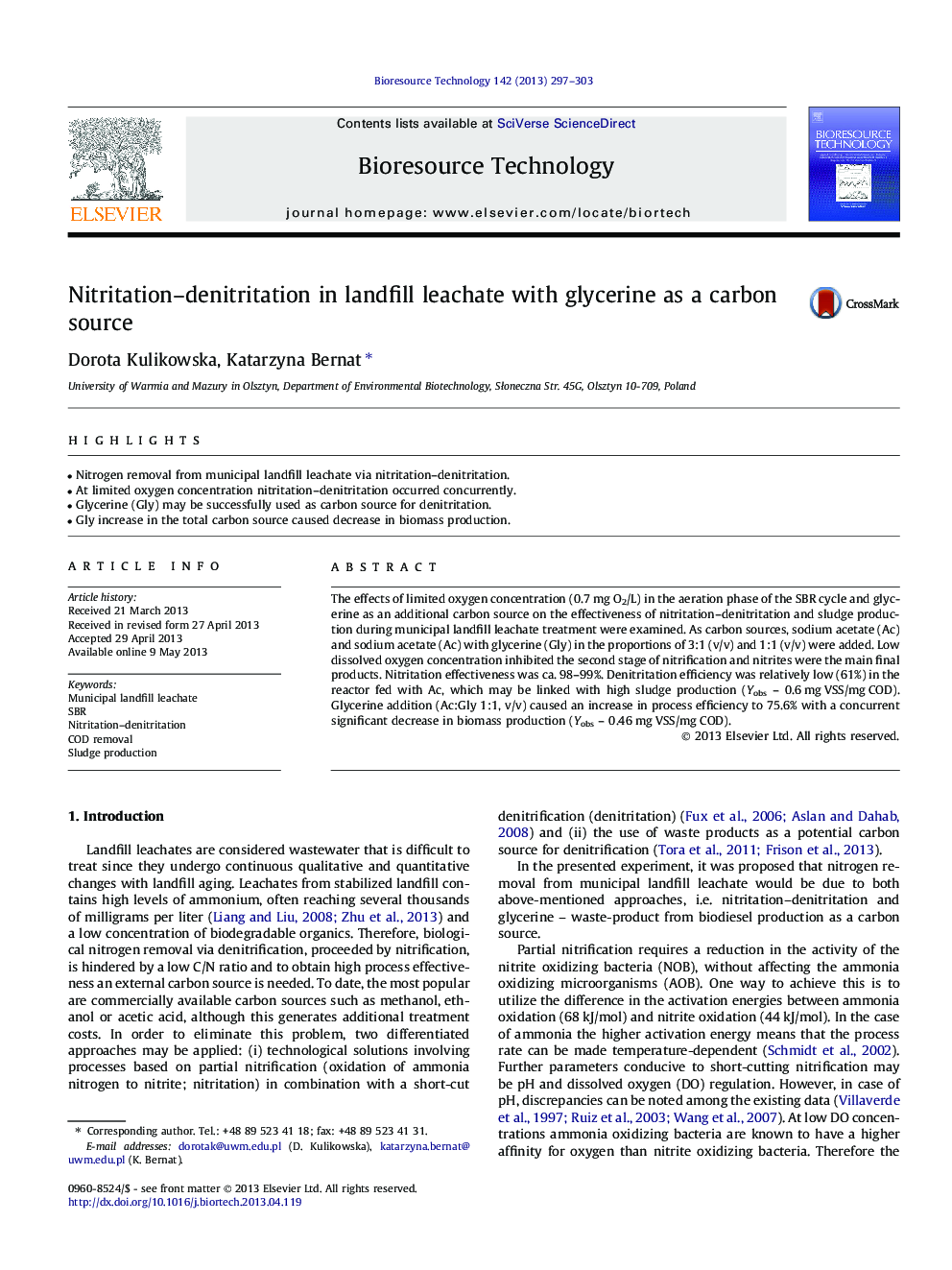| Article ID | Journal | Published Year | Pages | File Type |
|---|---|---|---|---|
| 7081576 | Bioresource Technology | 2013 | 7 Pages |
Abstract
The effects of limited oxygen concentration (0.7 mg O2/L) in the aeration phase of the SBR cycle and glycerine as an additional carbon source on the effectiveness of nitritation-denitritation and sludge production during municipal landfill leachate treatment were examined. As carbon sources, sodium acetate (Ac) and sodium acetate (Ac) with glycerine (Gly) in the proportions of 3:1 (v/v) and 1:1 (v/v) were added. Low dissolved oxygen concentration inhibited the second stage of nitrification and nitrites were the main final products. Nitritation effectiveness was ca. 98-99%. Denitritation efficiency was relatively low (61%) in the reactor fed with Ac, which may be linked with high sludge production (Yobs - 0.6 mg VSS/mg COD). Glycerine addition (Ac:Gly 1:1, v/v) caused an increase in process efficiency to 75.6% with a concurrent significant decrease in biomass production (Yobs - 0.46 mg VSS/mg COD).
Related Topics
Physical Sciences and Engineering
Chemical Engineering
Process Chemistry and Technology
Authors
Dorota Kulikowska, Katarzyna Bernat,
